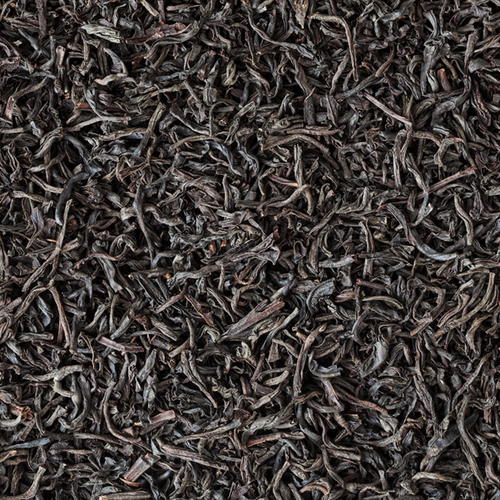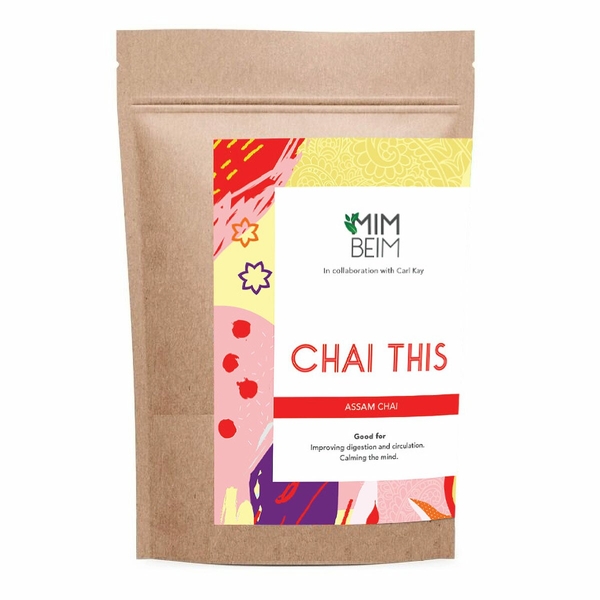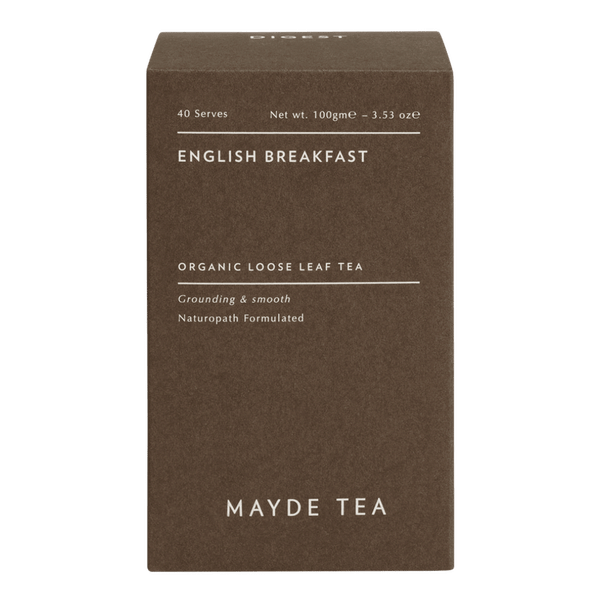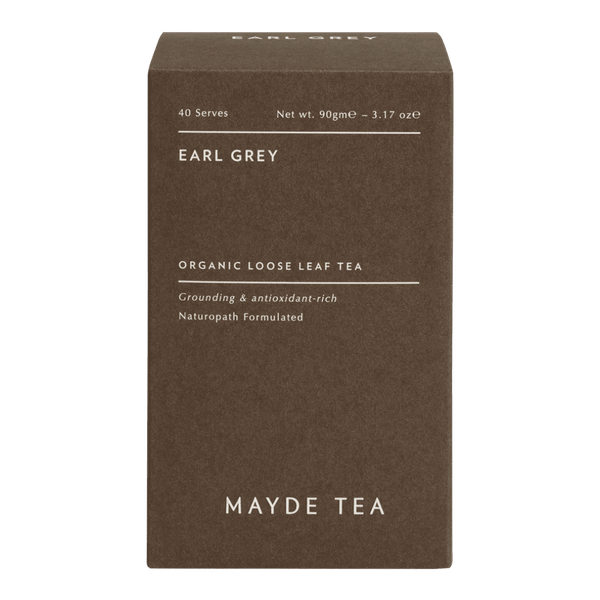
Background
Black tea contains 2% to 4% caffeine, which affects thinking and alertness. It also contains antioxidants and other substances that might help protect the heart and blood vessels. It has different properties than green tea, which is made from the fresh leaves of the same plant.
People use black tea for improving mental alertness. It is also used for headache, both low and high blood pressure, preventing Parkinson disease, depression, dementia, stroke, and many other conditions, but there is no good scientific evidence to support many of these uses.
Don't confuse black tea with other caffeine sources, including coffee, oolong tea, and green tea. These are not the same.
Safety Safety definitions
Drinking more than 4 cups of black tea daily is possibly unsafe. Drinking large amounts might cause side effects due to the caffeine content. These side effects can range from mild to serious and include headache and irregular heartbeat.
Drinking very high amounts of black tea containing more than 10 grams of caffeine is likely unsafe. Doses of black tea this high might cause death or other severe side effects.
Special Precautions & Warnings:
Pregnancy: Drinking moderate amounts of black tea during pregnancy is possibly safe. Do not drink more than 3 cups of black tea daily. This provides about 300 mg of caffeine. Consuming more than this during pregnancy is possibly unsafe and has been linked to an increased risk of miscarriage, increased risk of sudden infant death syndrome (SIDS), and other negative effects, including symptoms of caffeine withdrawal in newborns and lower birth weight.Breast-feeding: Drinking moderate amounts of black tea while breast-feeding is possibly safe. But drinking more than 3 cups of black tea daily is possibly unsafe. The caffeine in black tea is passed into breastmilk. It might cause irritability and increased bowel movements in nursing infants.
Children: Black tea is possibly safe in children when consumed in amounts found in food and beverages.
Anxiety disorders: The caffeine in black tea might make anxiety worse.
Bleeding disorders: There is some concern that the caffeine in black tea might slow blood clotting. Use caffeine cautiously if you have a bleeding disorder.
Heart problems: Black tea contains caffeine. Large amounts of caffeine can cause irregular heartbeat in certain people. If you have a heart condition, use caffeine in moderation.
Diabetes: The caffeine in black tea might affect blood sugar. Use black tea with caution if you have diabetes.
Diarrhea: Black tea contains caffeine. The caffeine in black tea, especially when taken in large amounts, might worsen diarrhea.
Seizures: Black tea contains caffeine. High doses of caffeine might cause seizures or decrease the effects of drugs used to prevent seizures. If you have ever had a seizure, don't take high doses of caffeine.
Glaucoma: Drinking caffeinated black tea increases the pressure inside the eye. The increase occurs within 30 minutes and lasts for at least 90 minutes. If you have glaucoma, use caffeine with caution.
Hormone-sensitive condition such as breast cancer, uterine cancer, ovarian cancer, endometriosis, or uterine fibroids: Black tea might act like estrogen. If you have any condition that might be made worse by exposure to estrogen, don't use black tea.
High blood pressure: The caffeine in black tea might increase blood pressure in people with high blood pressure. But this doesn't seem to occur in people who drink black tea or other caffeinated products regularly.
Irritable bowel syndrome (IBS): Black tea contains caffeine. The caffeine in black tea, especially when taken in large amounts, might worsen diarrhea and might worsen symptoms of IBS.
Brittle bones (osteoporosis): Drinking black tea can increase the amount of calcium that is flushed out in the urine. This might weaken bones. If you have osteoporosis, don't drink more than 3 cups of black tea daily. If you are generally healthy and get enough calcium from your food or supplements, drinking about 4 cups of black tea daily doesn't seem to increase the risk of getting osteoporosis.
Effectiveness
- Mental alertness. Drinking black tea and other caffeinated beverages helps to keep people alert and improve attention, even after extended periods without sleep.
- Low blood pressure. Drinking caffeinated beverages, including black tea, helps increase blood pressure in older people who have low blood pressure after eating.
- Heart attack. People who drink black tea seem to have a lower risk of having a heart attack.
- Weak and brittle bones (osteoporosis). Regularly drinking black tea seems to improve bone health by a small amount.
- Ovarian cancer. People who regularly drink tea, including black tea or green tea, seem to have a lower risk of developing ovarian cancer compared to those who never or rarely drink tea.
- Parkinson disease. People who drink caffeinated beverages, including black tea, seem to have a lower risk of Parkinson disease.
- Bladder cancer. People who drink tea, including black tea and green tea, do not seem to have a lower risk of bladder cancer compared to those who don't drink tea.
- Breast cancer. Drinking black tea isn't linked to a lower risk of developing breast cancer.
- Colon cancer, rectal cancer. Drinking black tea isn't linked with a lower risk of colon and rectal cancer.
- Diabetes. Taking an extract of black and green tea by mouth doesn't improve blood sugar levels in people with diabetes. Also, drinking black tea isn't linked with a lower risk of developing diabetes.
- Cancer of the lining of the uterus (endometrial cancer). Drinking black tea isn't linked to a lower risk of developing endometrial cancer.
- Cancer of the esophagus. Drinking black tea isn't linked to a lower risk of developing cancer of the esophagus.
- Stomach cancer. Drinking black tea isn't linked to a lower risk of developing stomach cancer.
- Lung cancer. Drinking black tea isn't linked to a lower risk of developing lung cancer.
Dosing & administration
Interactions with pharmaceuticals
Adenosine (Adenocard)
Interaction Rating=Moderate Be cautious with this combination.
Black tea contains caffeine. The caffeine in black tea might block the effects of adenosine, which is used to do a test called a cardiac stress test. Stop drinking black tea or other caffeine-containing products at least 24 hours before a cardiac stress test.
Alcohol (Ethanol)
Interaction Rating=Minor Be watchful with this combination.
Black tea contains caffeine. The body breaks down the caffeine in black tea to get rid of it. Alcohol can decrease how quickly the body breaks down caffeine. Taking black tea along with alcohol might increase the risk of caffeine side effects such as jitteriness, headache, and fast heartbeat.
Antibiotics (Quinolone antibiotics)
Interaction Rating=Moderate Be cautious with this combination.
Black tea contains caffeine. The body breaks down caffeine to get rid of it. Some antibiotics might decrease how quickly the body breaks down caffeine. Taking these antibiotics along with black tea can increase the risk of side effects including jitteriness, headache, and increased heart rate.
Birth control pills (Contraceptive drugs)
Interaction Rating=Moderate Be cautious with this combination.
Black tea contains caffeine. The body breaks down caffeine to get rid of it. Birth control pills can decrease how quickly the body breaks down caffeine. This might increase the risk for side effects from caffeine, such as jitteriness, headache, and fast heartbeat.
Carbamazepine (Tegretol)
Interaction Rating=Moderate Be cautious with this combination.
Black tea contains caffeine. Caffeine can decrease the effects of carbamazepine. Taking black tea with carbamazepine might decrease the effects of carbamazepine and increase the risk of seizures in some people.
Cimetidine (Tagamet)
Interaction Rating=Moderate Be cautious with this combination.
Black tea contains caffeine. The body breaks down caffeine to get rid of it. Cimetidine can decrease how quickly your body breaks down caffeine. Taking cimetidine along with black tea might increase the chance of caffeine side effects including jitteriness, headache, fast heartbeat, and others.
Clozapine (Clozaril)
Interaction Rating=Moderate Be cautious with this combination.
The body breaks down clozapine to get rid of it. The caffeine in black tea seems to decrease how quickly the body breaks down clozapine. Taking black tea along with clozapine may increase the effects and side effects of clozapine.
Dipyridamole (Persantine)
Interaction Rating=Moderate Be cautious with this combination.
Black tea contains caffeine. The caffeine in black tea might block the effects of dipyridamole. Dipyridamole is often used by doctors to do a test on the heart called a cardiac stress test. Stop drinking black tea or other caffeine-containing products at least 24 hours before a cardiac stress test.
Disulfiram (Antabuse)
Interaction Rating=Moderate Be cautious with this combination.
Black tea contains caffeine. The body breaks down caffeine to get rid of it. Disulfiram can decrease how quickly the body gets rid of caffeine. Taking black tea along with disulfiram might increase the effects and side effects of caffeine including jitteriness, hyperactivity, irritability, and others.
Ephedrine
Interaction Rating=Major Do not take this combination.
Black tea contains caffeine. Caffeine is a stimulant drug. Stimulant drugs speed up the nervous system. Ephedrine is also a stimulant drug. Taking black tea along with ephedrine might cause too much stimulation and sometimes serious side effects and heart problems.
Estrogens
Interaction Rating=Moderate Be cautious with this combination.
Black tea contains caffeine. The body breaks down caffeine to get rid of it. Estrogens can decrease how quickly the body breaks down caffeine. Taking estrogen and drinking black tea can increase the risk of side effects such as jitteriness, headache, and fast heartbeat.
Ethosuximide (Zarontin)
Interaction Rating=Moderate Be cautious with this combination.
Ethosuximide is a drug used to treat seizures. Caffeine in black tea can decrease the effects of ethosuximide. Taking black tea with ethosuximide might decrease the effects of ethosuximide and increase the risk of seizures in some people.
Felbamate (Felbatol)
Interaction Rating=Moderate Be cautious with this combination.
Felbamate is a drug used to treat seizures. Caffeine in black tea might decrease the effects of felbamate. Taking black tea with felbamate might decrease the effects of felbamate and increase the risk of seizures in some people.
Fluconazole (Diflucan)
Interaction Rating=Minor Be watchful with this combination.
Black tea contains caffeine. Fluconazole might decrease how quickly the body gets rid of caffeine. This could increase the levels of caffeine in the body and increase the risk of side effects such as nervousness, anxiety, and insomnia.
Flurbiprofen (Ansaid, others)
Interaction Rating=Minor Be watchful with this combination.
There has been some concern that black tea might reduce the breakdown of flurbiprofen. But this does not seem to occur in humans.
Flutamide (Eulexin)
Interaction Rating=Moderate Be cautious with this combination.
The body breaks down flutamide to get rid of it. Caffeine in black tea might decrease how quickly the body gets rid of flutamide. This could increase the levels of flutamide in the body and increase the risk of side effects.
Fluvoxamine (Luvox)
Interaction Rating=Moderate Be cautious with this combination.
Black tea contains caffeine. The body breaks down caffeine to get rid of it. Fluvoxamine can decrease how quickly the body breaks down caffeine. Taking caffeine along with fluvoxamine might increase the effects and side effects of caffeine.
Lithium
Interaction Rating=Moderate Be cautious with this combination.
The caffeine in black tea can increase how quickly the body gets rid of lithium. If you consume black tea regularly and also take lithium, don't stop black tea suddenly. Instead, slowly reduce intake of black tea. Stopping caffeine too quickly can increase the side effects of lithium.
Medications for asthma (Beta-adrenergic agonists)
Interaction Rating=Moderate Be cautious with this combination.
Black tea contains caffeine. Caffeine can stimulate the heart. Some medications for asthma can also stimulate the heart. Taking caffeine with some medications for asthma might cause too much stimulation and cause heart problems.
Medications for depression (MAOIs)
Interaction Rating=Moderate Be cautious with this combination.
Black tea contains caffeine. There is some concern that caffeine can interact with certain medications, called MAOIs. If caffeine is taken with these medications, it might increase the risk for serious side effects including fast heartbeat and very high blood pressure.
Some common MAOIs include phenelzine (Nardil), selegiline (Zelapar), and tranylcypromine (Parnate).
Medications for depression (Tricyclic antidepressants)
Interaction Rating=Minor Be watchful with this combination.
Black tea contains chemicals called tannins. Tannins can bind to many medications, including tricyclic antidepressants, and decrease how much medicine the body absorbs. To avoid this interaction, avoid black tea 1 hour before and 2 hours after taking tricyclic antidepressants.
Medications for diabetes (Antidiabetes drugs)
Interaction Rating=Minor Be watchful with this combination.
Black tea contains caffeine. Caffeine can either increase or decrease blood sugar. Diabetes medications are used to lower blood sugar. Taking some medications for diabetes along with caffeine might change the effects of the diabetes medications. Monitor your blood sugar closely. The dose of your diabetes medication might need to be changed.
Medications moved by pumps in cells (Organic anion-transporting polypeptide substrates)
Interaction Rating=Moderate Be cautious with this combination.
Some medications are moved in and out of cells by pumps. Black tea might change how these pumps work and change how much medication stays in the body. In some cases, this might change the effects and side effects of a medication.
Medications that slow blood clotting (Anticoagulant / Antiplatelet drugs)
Interaction Rating=Moderate Be cautious with this combination.
Black tea might slow blood clotting. Taking black tea along with medications that also slow blood clotting might increase the risk of bruising and bleeding.
Metformin (Glucophage)
Interaction Rating=Minor Be watchful with this combination.
Black tea contains caffeine. Metformin can decrease how quickly the body breaks down caffeine. Taking black tea along with metformin might increase the effects and side effects of caffeine.
Methoxsalen (Oxsoralen)
Interaction Rating=Minor Be watchful with this combination.
Black tea contains caffeine. Methoxsalen can decrease how quickly the body breaks down caffeine. Taking caffeine along with methoxsalen might increase the effects and side effects of caffeine.
Mexiletine (Mexitil)
Interaction Rating=Minor Be watchful with this combination.
Black tea contains caffeine. Mexiletine can decrease how quickly the body breaks down caffeine. Taking mexiletine along with black tea might increase the side effects of caffeine.
Nicotine
Interaction Rating=Moderate Be cautious with this combination.
Black tea contains caffeine. Caffeine can stimulate the heart. Nicotine can also stimulate the heart. Taking caffeine with nicotine might cause too much stimulation and cause heart problems, such as increased heart rate or blood pressure.
Pentobarbital (Nembutal)
Interaction Rating=Moderate Be cautious with this combination.
The stimulant effects of the caffeine in black tea might block the sleep-producing effects of pentobarbital.
Phenobarbital (Luminal)
Interaction Rating=Moderate Be cautious with this combination.
Phenobarbital is a drug used to treat seizures. Caffeine in black tea might decrease the effects of phenobarbital and increase the risk of seizures in some people.
Phenothiazines
Interaction Rating=Minor Be watchful with this combination.
Black tea contains chemicals called tannins. Tannins can bind to many medications, including phenothiazines, and decrease how much medicine the body absorbs. To avoid this interaction, avoid black tea one hour before and two hours after taking phenothiazine medications. There is also a concern that phenothiazines might reduce the breakdown of caffeine. This might increase levels of caffeine in the body and increase the risk of caffeine side effects.
Phenylpropanolamine
Interaction Rating=Moderate Be cautious with this combination.
The caffeine in black tea can stimulate the body. Phenylpropanolamine can also stimulate the body. Taking caffeine and phenylpropanolamine together might cause too much stimulation and increase heartbeat, blood pressure, and cause nervousness.
Phenytoin (Dilantin)
Interaction Rating=Moderate Be cautious with this combination.
Phenytoin is a drug used to treat seizures. Caffeine in black tea can decrease the effects of phenytoin. Taking black tea with phenytoin might decrease the effects of phenytoin and increase the risk of seizures in some people.
Pioglitazone (Actos)
Interaction Rating=Moderate Be cautious with this combination.
Caffeine in black tea might increase the amount of pioglitazone that the body absorbs. Drinking black tea might increase the effects and adverse effects of pioglitazone.
Riluzole (Rilutek)
Interaction Rating=Moderate Be cautious with this combination.
Drinking black tea might decrease how quickly the body breaks down riluzole and increase the effects and side effects of riluzole.
Rosuvastatin (Crestor)
Interaction Rating=Moderate Be cautious with this combination.
Black tea might decrease how much rosuvastatin the body absorbs. Taking black tea along with rosuvastatin might decrease the effects of rosuvastatin.
Stimulant drugs
Interaction Rating=Moderate Be cautious with this combination.
Stimulants, such as amphetamines and cocaine, speed up the nervous system. By speeding up the nervous system, stimulant medications can increase blood pressure and speed up the heartbeat. Black tea contains caffeine. Caffeine can also speed up the nervous system. Taking black tea along with stimulant drugs might cause serious problems including increased heart rate and high blood pressure.
Terbinafine (Lamisil)
Interaction Rating=Minor Be watchful with this combination.
Black tea contains caffeine. Terbinafine can decrease how quickly the body gets rid of caffeine. Taking terbinafine with black tea might increase the risk of side effects, such as jitteriness, headache, and increased heartbeat.
Theophylline
Interaction Rating=Moderate Be cautious with this combination.
Black tea contains caffeine. Caffeine works similarly to theophylline. Caffeine can also decrease how quickly the body gets rid of theophylline. This might cause increased effects and side effects of theophylline.
Tiagabine (Gabitril)
Interaction Rating=Minor Be watchful with this combination.
Black tea contains caffeine. Taking caffeine over a long time period along with tiagabine can increase the amount of tiagabine in the body. This might increase the effects and side effects of tiagabine.
Ticlopidine (Ticlid)
Interaction Rating=Minor Be watchful with this combination.
Ticlopidine can decrease how quickly the body gets rid of caffeine. Taking black tea along with ticlopidine might increase the effects and side effects of caffeine, including jitteriness, hyperactivity, irritability, and others.
Valproate
Interaction Rating=Moderate Be cautious with this combination.
Valproate is a drug used to treat seizures. Caffeine in black tea might decrease the effects of valproate and increase the risk of seizures in some people.
Verapamil (Calan, others)
Interaction Rating=Moderate Be cautious with this combination.
Verapamil can decrease how quickly the body gets rid of caffeine. Drinking black tea and taking verapamil can increase the risk of side effects for caffeine including jitteriness, headache, and an increased heartbeat.
Warfarin (Coumadin)
Interaction Rating=Moderate Be cautious with this combination.
Warfarin is used to slow blood clotting. Large amounts of black tea might decrease the effects of warfarin. This might increase the risk of clotting. Be sure to have your blood checked regularly. The dose of your warfarin might need to be changed.
Water pills (Diuretic drugs)
Interaction Rating=Moderate Be cautious with this combination.
Black tea contains caffeine. Caffeine, especially in large amounts, can reduce potassium levels in the body. "Water pills" can also decrease potassium levels in the body. Taking large amounts of caffeine along with "water pills" might decrease potassium levels too much.
Interactions with herbs & supplements
Caffeine-containing herbs and supplements: Black tea contains caffeine. Taking it along with other supplements that contain caffeine might increase caffeine side effects. Examples of supplements that contain caffeine include coffee, green tea, guarana, and yerba mate.
Calcium: High caffeine intake from foods and beverages, including black tea, flushes calcium out of the body in the urine. This might lower calcium levels in the body.
Cordyceps: Black tea contains caffeine. Cordyceps might increase how quickly the body gets rid of caffeine. This might decrease the effects of caffeine.
Creatine: Combining caffeine, ephedra, and creatine might increase the risk of serious unwanted side effects. One athlete who used this combination, as well as some other supplements to improve performance, suffered a stroke. Researchers worry the stroke might have been caused by the supplements.
Danshen: Black tea contains caffeine. Danshen can decrease how quickly the body gets rid of caffeine. Drinking black tea and taking danshen might increase the risk of side effects, including jitteriness, headache, and an increased heartbeat.
Echinacea: Black tea contains caffeine. Echinacea can decrease how quickly the body gets rid of caffeine. Drinking black tea and taking echinacea might increase the risk of side effects, including jitteriness, headache, and an increased heartbeat.
Ephedra: Black tea contains caffeine. Using ephedra with caffeine might increase the risk of serious life-threatening or disabling conditions such as hypertension, heart attack, stroke, seizures, and death. Avoid this combination.
Folic acid: Black tea might reduce the amount of folic acid that the body can absorb and use.
Genistein-containing herbs and supplements: Black tea contains caffeine. A chemical called genistein can decrease how quickly the body gets rid of caffeine. Drinking black tea and taking genistein might increase the risk of side effects for caffeine, including jitteriness, headache, and an increased heartbeat. Examples of supplements that contain genistein include cumin, dyer's broom, kudzu, red clover, and soy.
Herbs and supplements that might slow blood clotting: Black tea might slow blood clotting and increase the risk of bleeding. Taking it with other supplements with similar effects might increase the risk of bleeding in some people. Examples of supplements with this effect include garlic, ginger, ginkgo, nattokinase, and Panax ginseng.
Iron: Black tea might reduce the absorption of iron supplements. For most people, this effect will not be enough to make a difference in their health. But people who don't have enough iron should drink black tea between meals rather than with meals to avoid this interaction.
Kudzu: Black tea contains caffeine. Kudzu can decrease how quickly the body gets rid of caffeine. Drinking black tea and taking kudzu might increase the risk of side effects, including jitteriness, headache, and an increased heartbeat.
Magnesium: Drinking large amounts of black tea can increase the amount of magnesium that is flushed out in the urine. This might lower magnesium levels in the body.
Melatonin: Black tea contains caffeine. Taking caffeine and melatonin together can increase melatonin levels. Caffeine can also increase natural melatonin levels in healthy individuals.
Interactions with foods
Adding milk to black tea appears to reduce some of the heart health benefits of drinking tea. Milk might bind with the antioxidants in tea and keep them from being absorbed. But it's not clear if this is a real concern.







